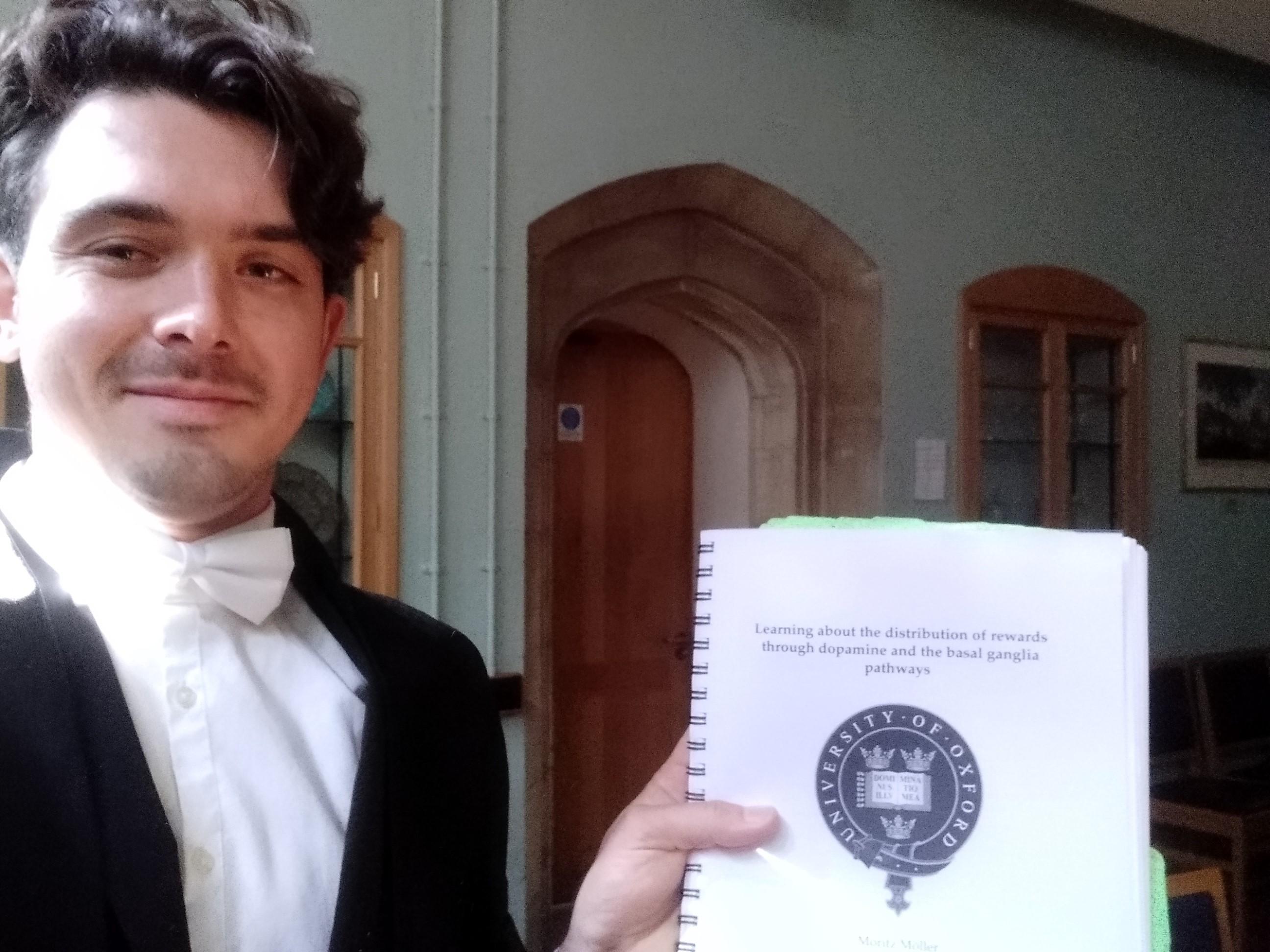
Our congratulations go to Unit D.Phil. student Moritz Möller for successfully defending his doctoral thesis, entitled “Learning about the distribution of rewards through dopamine and the basal ganglia pathways”, in his viva voce examination on 15th September 2021.
Moritz’s viva examiners were Professor Samuel Gerschman (Department of Psychology, Harvard University, USA) and Professor Timothy Behrens (Nuffield Department of Clinical Neurosciences, University of Oxford). The viva took place remotely via digital conferencing.
Moritz was supervised by Professor Rafal Bogacz (MRC BNDU) and Associate Professor Sanjay Manohar (NDCN).
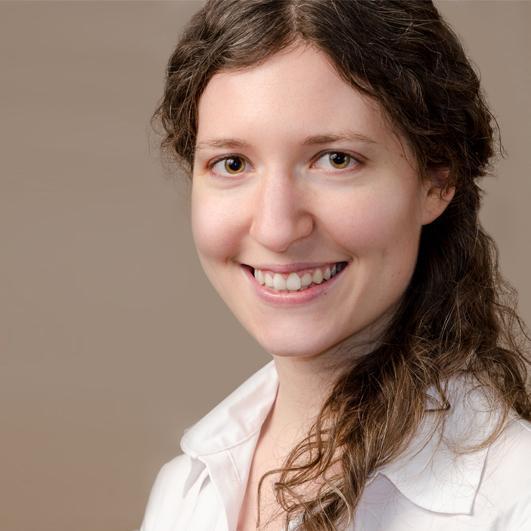
We bid a fond farewell to Dr Petra Fischer as she leaves the Unit to take up her new position of Lecturer in Neuroscience at the University of Bristol.
Petra has been working in the Unit as part of the Brown Group and Tan Group, where she has delivered a series of important studies that elucidate the role of neuronal oscillations in the control of movement in health and disease.
Unit Interim Director Peter Magill commented "It has been a pleasure and a privilege to host Petra in the Unit for her Ph.D. studies and postdoctoral training. Petra is an exceptional researcher and has made outstanding contributions to a wide range of scientific and public engagement activities at the Unit. We look forward to exploring further opportunities to collaborate with Petra as she establishes her independent research programme in Bristol. We will all miss working with Petra in the Unit, but it is a comfort to know that it is ‘au revoir’ and not ‘goodbye’."
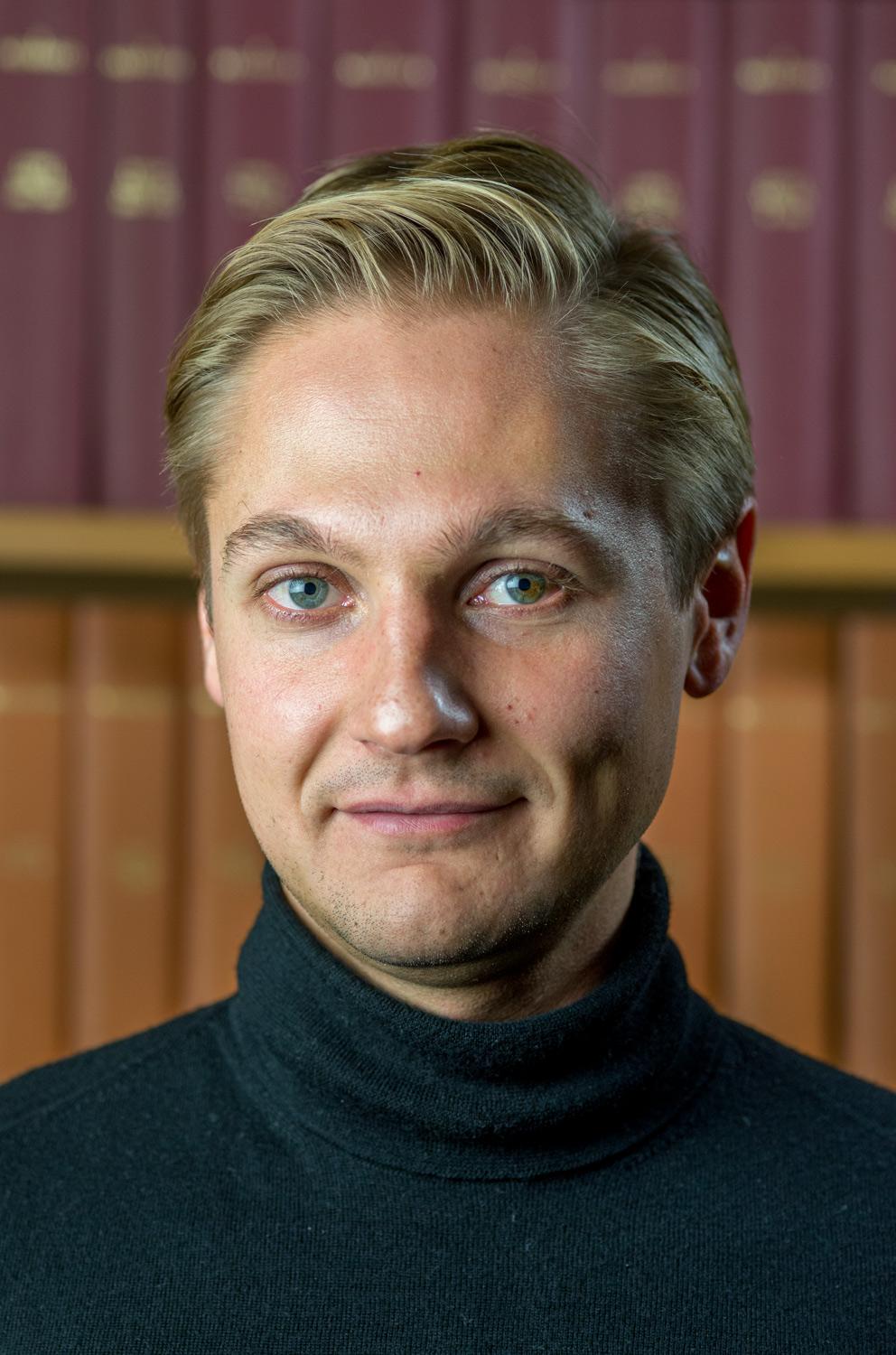
Our congratulations go to Unit D.Phil. student Roman Rothaermel for successfully defending his doctoral thesis, entitled “Brain-wide cell assembly patterns for memory-guided behaviour”, in his viva voce examination on 28th July 2021.
Roman’s viva examiners were Dr Andrew MacAskill (University College London) and Professor Stephanie Cragg (University of Oxford). The viva took place remotely via digital conferencing.
Roman was supervised by Professor David Dupret (MRC BNDU) and Professor Mark Stokes (Experimental Psychology).
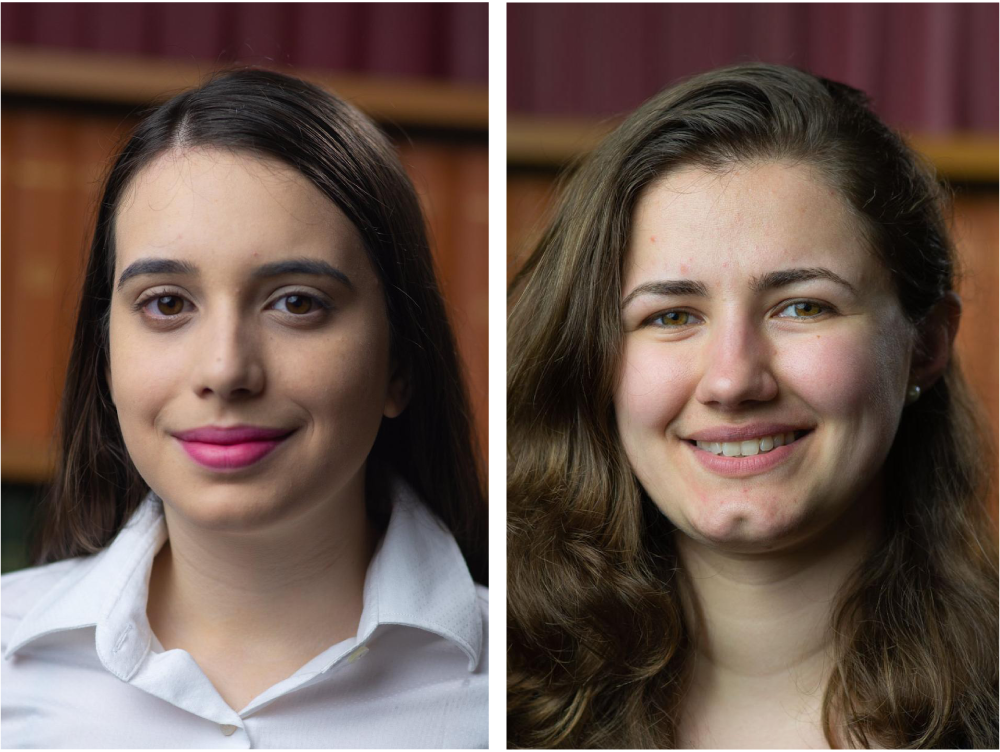
Beatriz Silveira de Arruda (left) and Dr. Ioana Grigoras (right), co-winners of the 2021 Director’s Award for Public Engagement.
Congratulations to Unit students Beatriz Silveira de Arruda and Ioana Grigoras on co-winning the Director’s Award for Public Engagement for 2021.
The Award is given annually, on the basis of nominations made by Unit members, to recognise and celebrate the exemplary contributions of individuals or a small collective to the Unit’s extensive Outreach Programme.
Beatriz's and Ioana’s Awards were announced by Unit Interim Director Professor Peter Magill at a special ceremony held last week.
Professor Magill commented “It gives us all great pleasure to reward Beatriz and Ioana in this way. Both have clearly shown strong personal commitments to public engagement, successfully delivering a number of activities in Oxford and beyond. Beatriz has taken the Unit’s outreach programme as far as Brazil, and Ioana is commended for her creative use of digital media for wider impact.
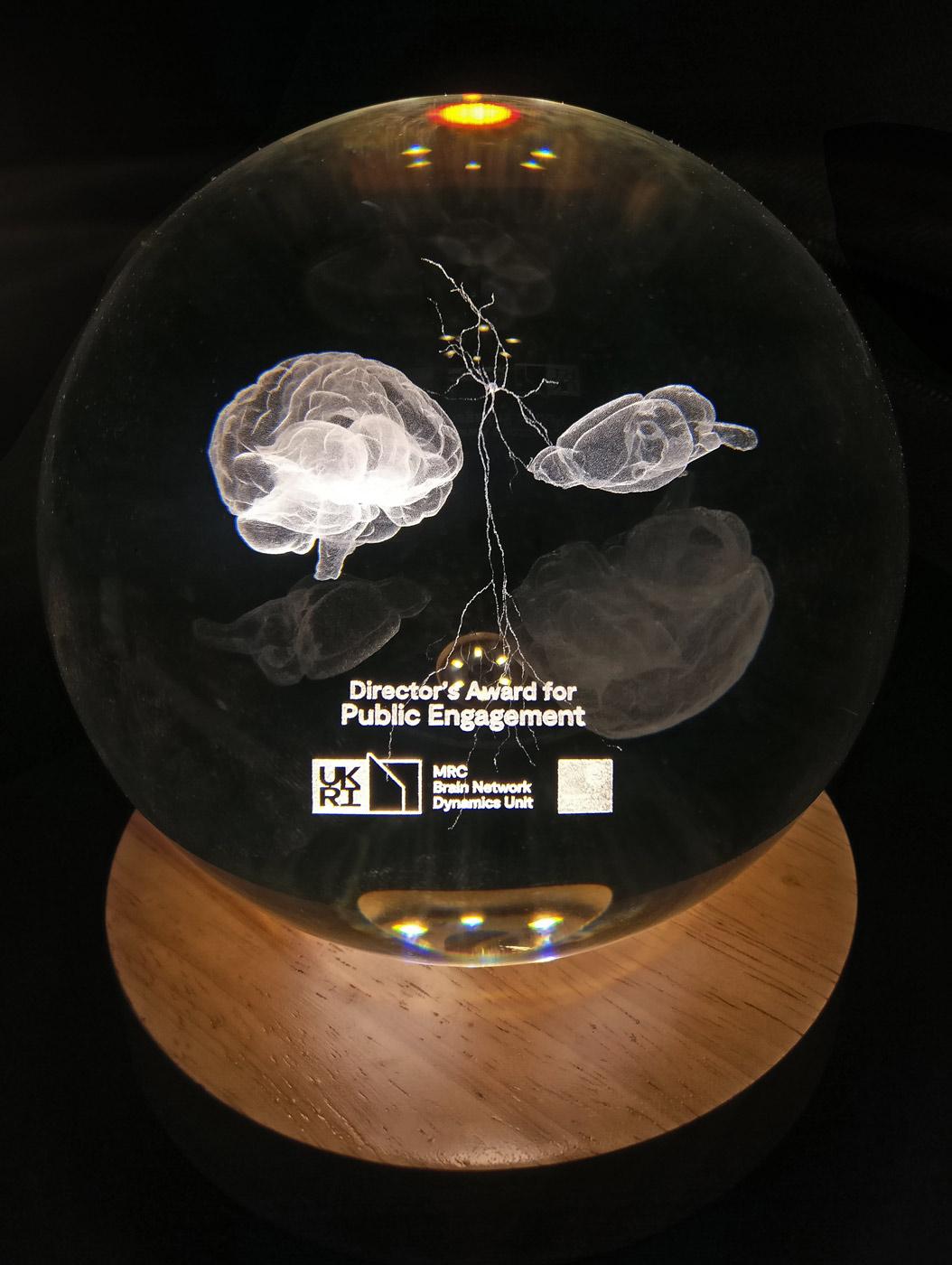
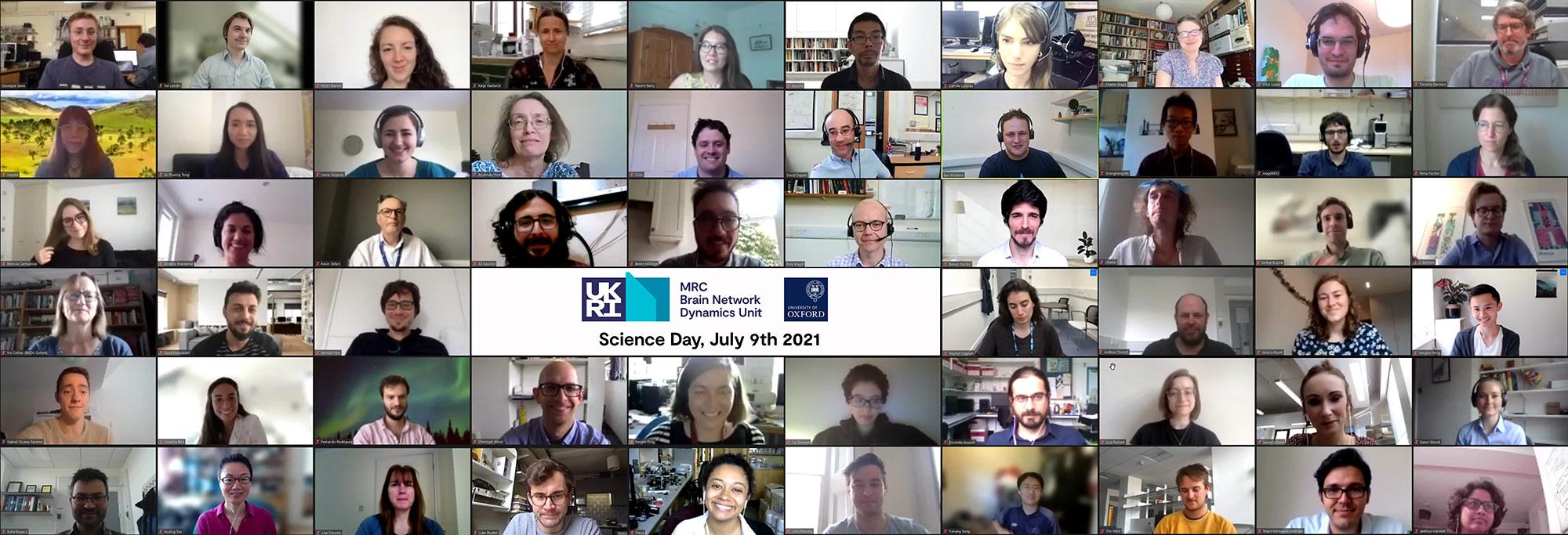
The Unit held its twelfth Science Day on Friday 9th July 2021. Unpublished work and future research projects were the focus of discussion, and Unit members and visitors enthusiastically took the chance to offer the constructive criticism needed to support collaboration and foster cutting-edge research.
There were 8 research talks, all of which were given by the Unit’s early-career scientists. Unit Research Support Manager Ben Micklem also gave an insightful presentation on best practice in data sharing. Attendees were also treated to a Special Lecture by Professor Rob Brownstone of University College London, in which he gave an entertaining and shrewd account of the neuronal mechanisms of DYT1 dystonia.
Unit Interim Director Professor Peter Magill commented: “A fantastic virtual showcase of interdisciplinary research, and a great opportunity to review our collective progress in fulfilling the Units’ Mission. It was a pleasure and a privilege to see the next generation of our talented researchers in action and to learn from them.”
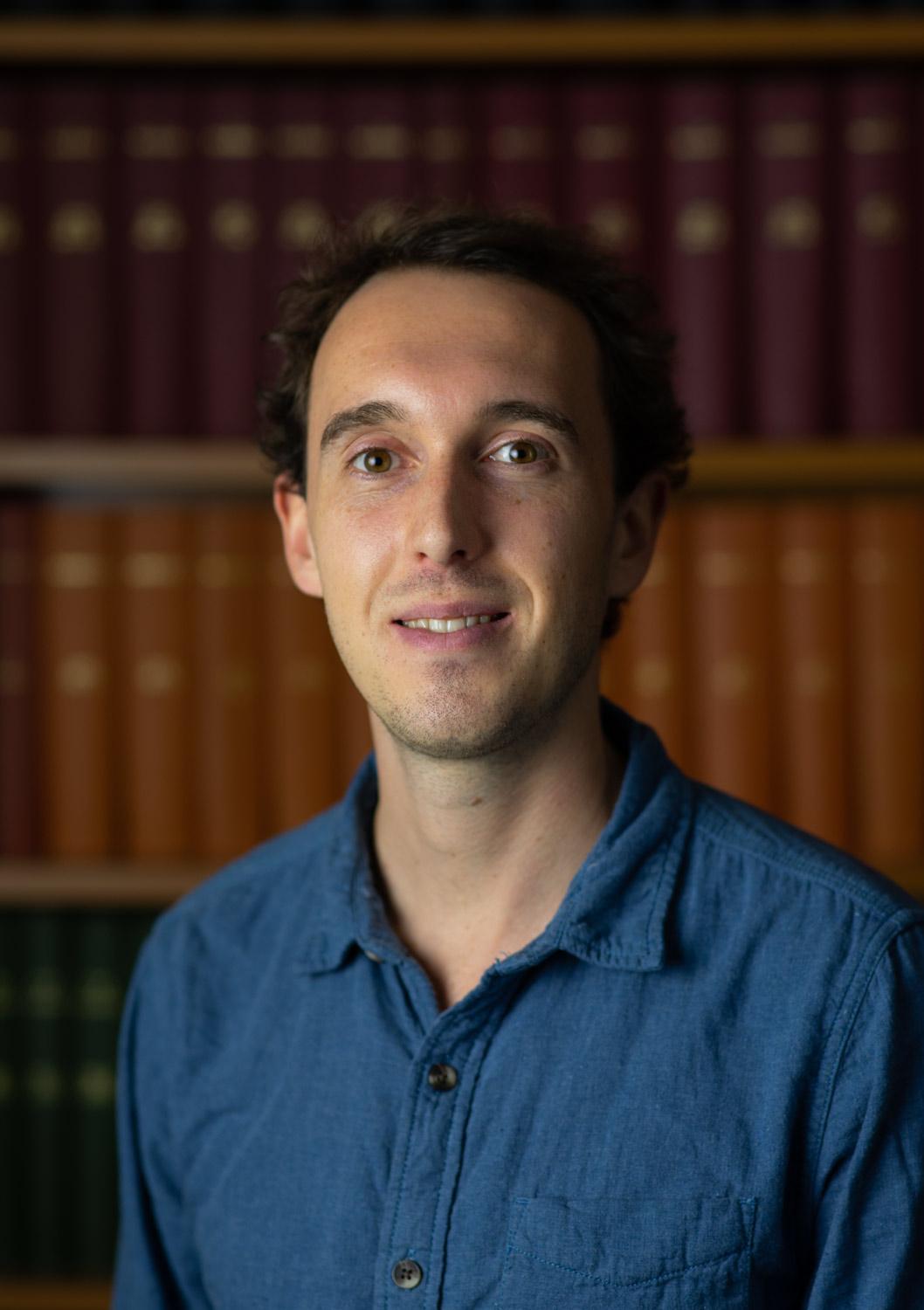
Our congratulations go to Unit D.Phil. student Charlie Clarke-Williams for successfully defending his doctoral thesis, entitled “Investigating multi-regional neural dynamics associated with cocaine-paired memory”, in his viva voce examination on 6th July 2021.
Charlie’s viva examiners were Professor Antonio Fernandez-Ruiz (Cornell University, USA) and Professor Mark Woolrich (University of Oxford). The viva took place remotely via digital conferencing.
Charlie was supervised by Professor David Dupret (MRC BNDU) and Professor David Bannerman (Experimental Psychology).
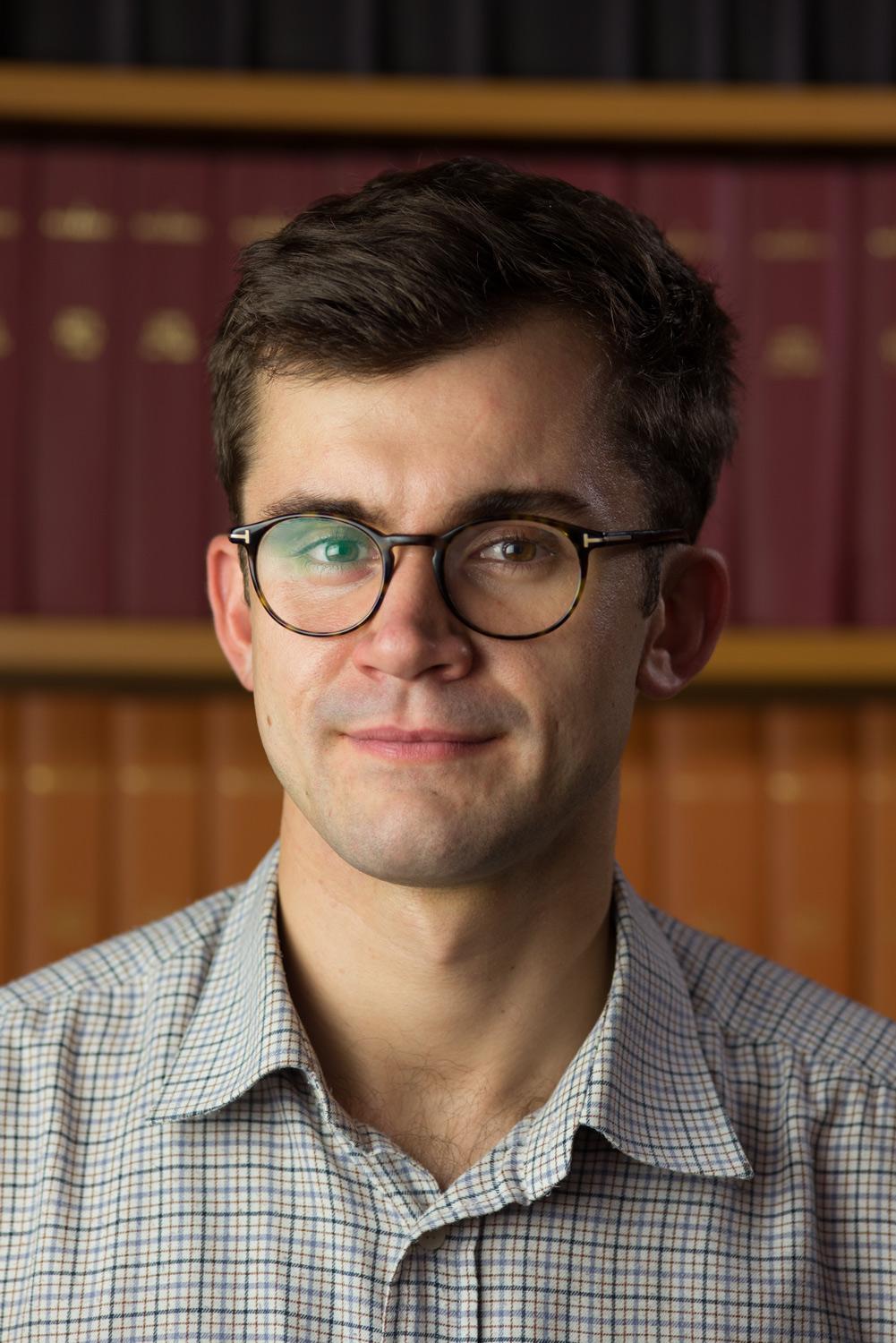
Our congratulations go to Unit D.Phil. student Luke Bryden for successfully defending his doctoral thesis, entitled “A functional characterisation of retrorubral field dopaminergic neurons”, in his viva voce examination on 24th June 2021.
Luke’s viva examiners were Professor John Reynolds (University of Otago, New Zealand) and Professor Stephanie Cragg (University of Oxford). The viva took place remotely via digital conferencing.
Luke was supervised by Professor Peter Magill (MRC BNDU), Dr Paul Dodson (Associate Member of MRC BNDU), and Associate Professor Mark Walton (Experimental Psychology).
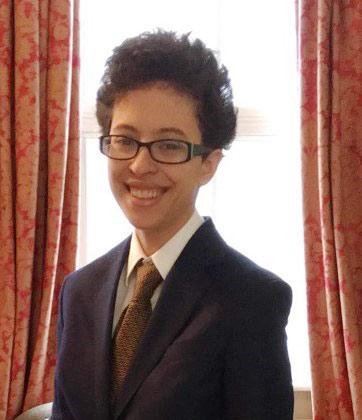
We are pleased to welcome Cal Shearer to the Unit as a visiting student.
Cal is currently pursuing a 1+3 M.Sc. and D.Phil. in Neuroscience at the University of Oxford, where she is funded by the Department of Experimental Psychology. As part of her M.Sc. programme, Cal joins the Dupret Group for the summer and will investigate hippocampal neuronal dynamics during a memory task in mice under the supervision of Dr Helen Barron.
Cal originally studied Psychology and Linguistics at the University of Oxford. For an undergraduate research project, Cal used electroencephalography to investigate the neural signatures of flexible categorisation in humans, supervised by Professor Mark Stokes and Dr Nicholas Meyers. As part of a previous M.Sc. project, Cal worked with Professor Chris Summerfield on modelling the geometry of neural network representations formed during a multi-context categorisation task.
Working with Helen in the Unit, Cal will now learn mouse hippocampal network physiology using a combination of multichannel extracellular recordings and calcium imaging.
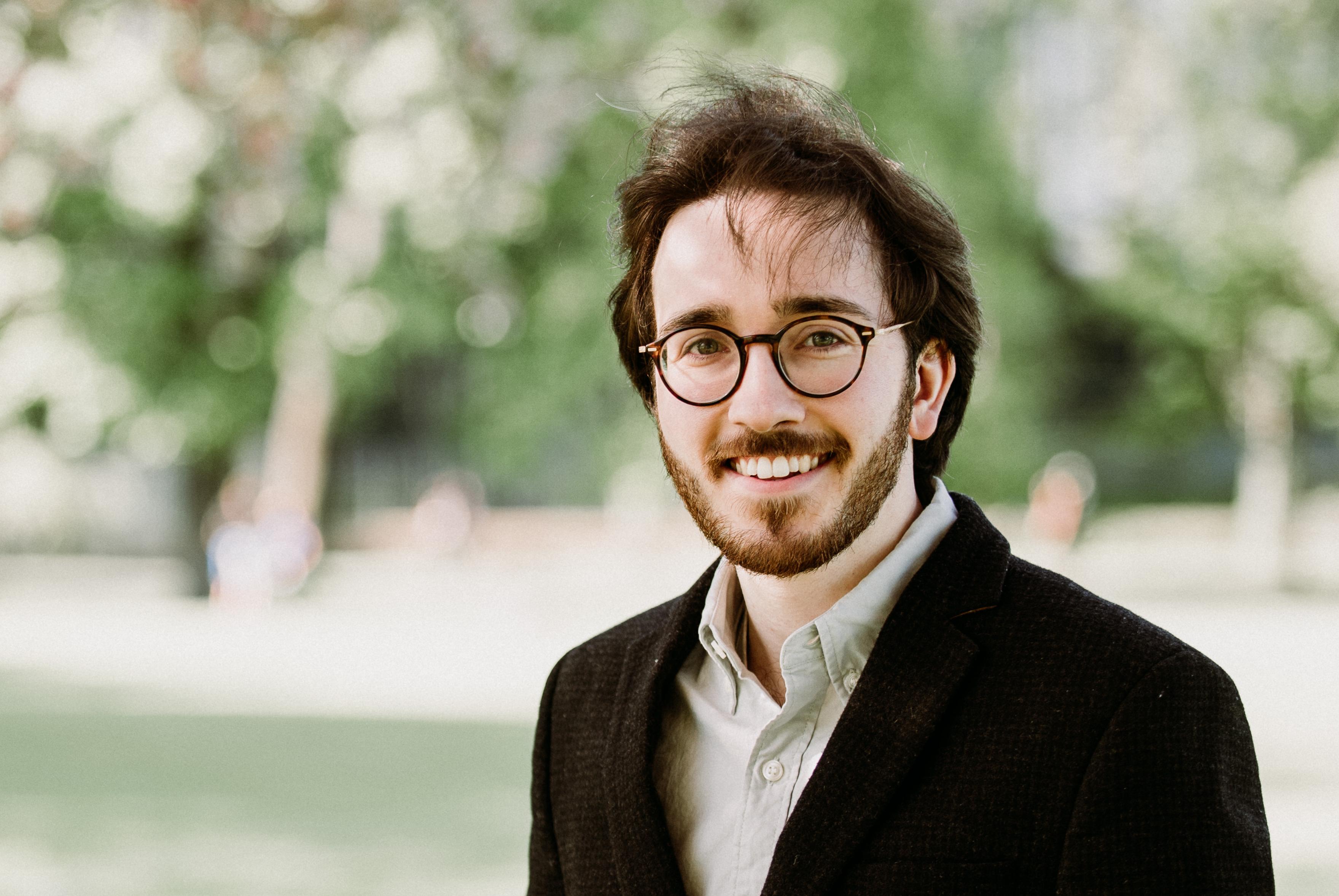
We are pleased to welcome Dr Beren Millidge to the Unit as a Postdoctoral Research Scientist in the Bogacz Group.
Beren's overarching research goal is to merge the fields of machine learning and neuroscience to try to understand how intelligence functions in brains and (eventually) in machines as well. He is especially focused on understanding questions of choice and action selection, and inference in the brain, with a focus on exploration, as well as how the cortex can perform long-term credit assignment as deep artificial neural networks do.
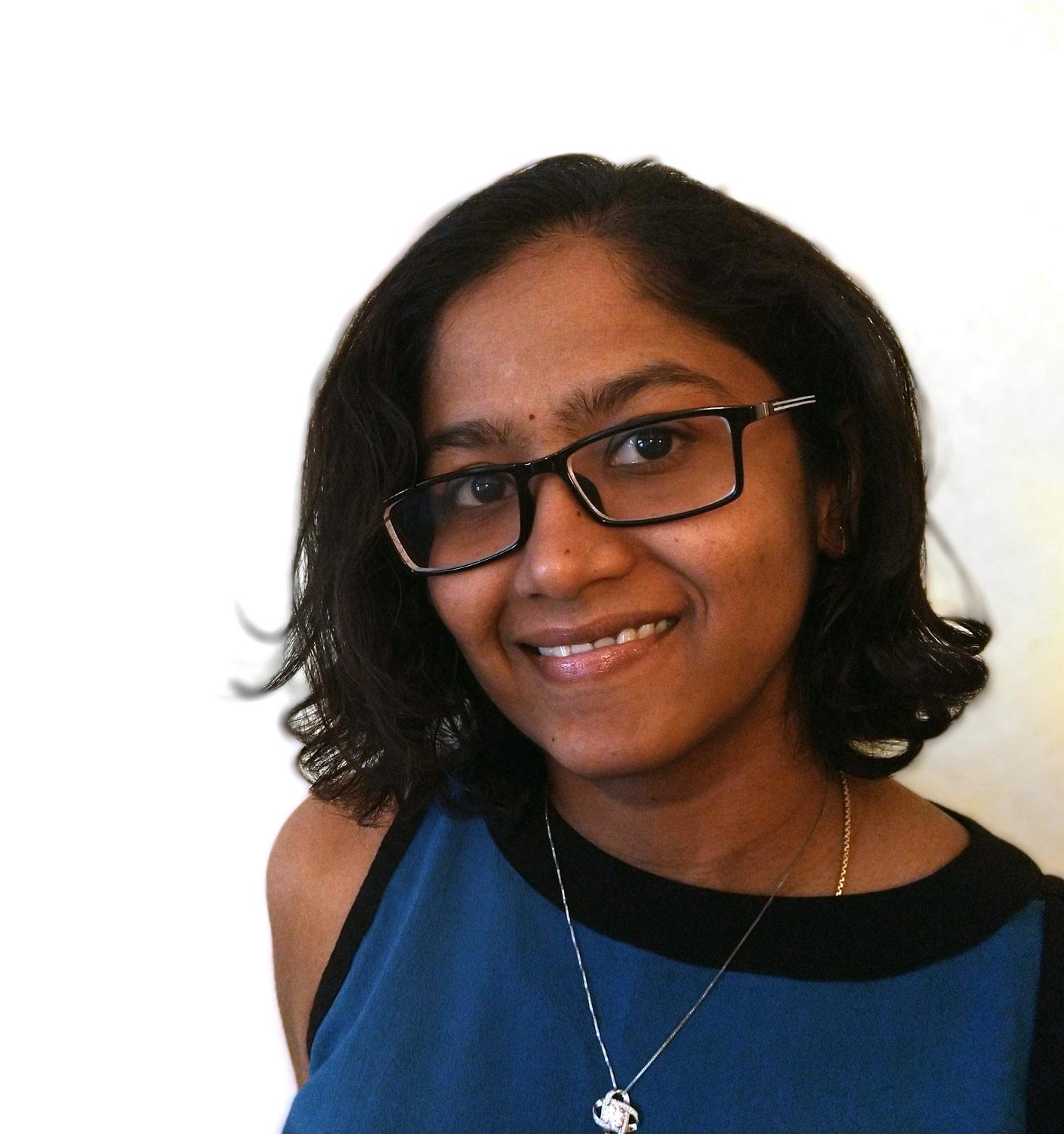
We are pleased to welcome Dr. Alekhya Mandali to the Unit as a Postdoctoral Neuroscientist in the Cagnan Group.
Alekhya completed her doctoral training in computational neuroscience in 2017 at the Indian Institute of Technology, India, where she worked under the joint supervision of Professor Srinivasa Chakravarthy and Professor Asha Kishore. Alekhya is interested in developing precise neuro-modulatory protocols that focus on improving cognition in people with neuropsychiatric disorders. Specifically, she aims to integrate predictions from computational models to design and test experimental paradigms. In 2017, Alekhya joined Dr Valerie Voon's lab at the University of Cambridge, where she developed stimulation protocols to study neural activity and modify behaviours. These behaviours included conflict-uncertainty based decision making and affective processing in healthy participants and people with Parkinson's disease.
Here in the Unit, Alekhya will work on combining invasive and non-invasive stimulation methods to develop closed-loop protocols that are subject-specific, with the aim of modulating behaviours driven by the cortico-basal ganglia network.